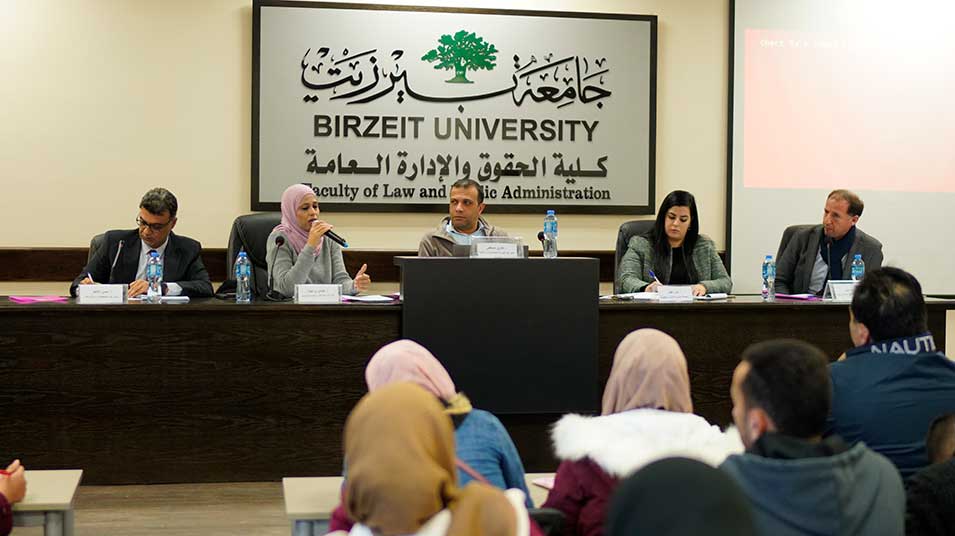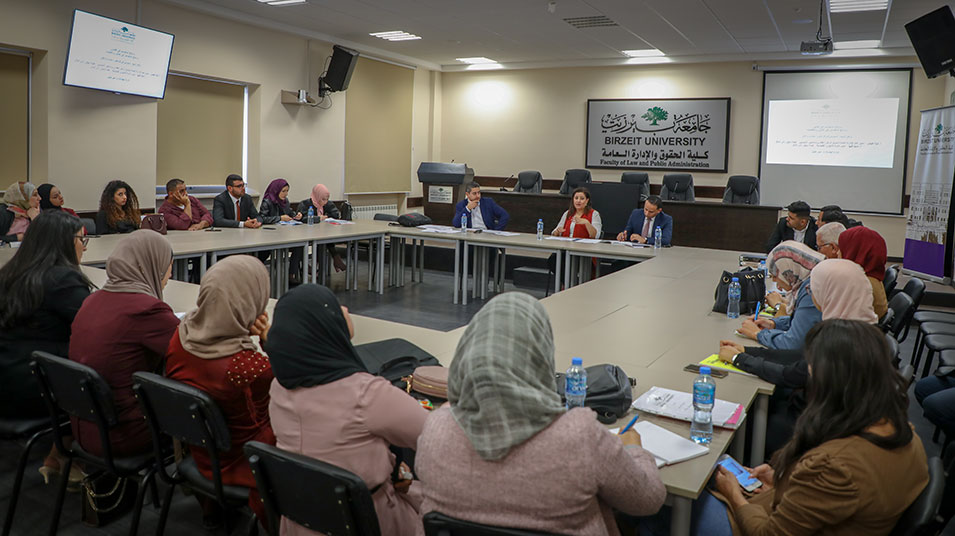Symposium re-reads Palestine’s general budget, economic crisis
The Public Administration Department at Birzeit University’s Faculty of Law and Public Administration held a symposium to reevaluate the Palestinian general budget, covering topics that ranged from its general framework to the regulations that govern the budget systems.
The symposium, organized on November 20, 2019, featured Tariq Mustafa, director general of the budget at the Ministry of Finance; Hanadi Barahmeh, budget director at the Ministry of Social Development; and Hassan Ashqar, director general of policy and planning at the Ministry of Agriculture.
Mustafa opened the lecture by stating that the current financial crisis in Palestine, due to perpetual Israeli deduction of funds from each transfer of clearance revenues and exacerbated by a decrease of local revenues, has a major impact on public services. According to Mustafa, the government has put up an emergency plan to deal with the crisis, planning to rely on increasing local revenues, funds and donations, as well as bank financing.
Talking about the Ministry of Social Development’s responsibility to contribute to the Palestinian general budget, Barahmeh explained that the ministry is supplying 200 thousand dollars to assist families in need and support women who have experienced violence.
The financial crisis, Barahmeh added, negatively affects the work of the ministry and is caused by a decline of financial assistance by international donors and by misallocations in the budget.
Ashqar focused on the agricultural sector and pointed to its contribution to the GDP, stating that agriculture-related revenues have been increasing continuously and are making a positive impact on the Palestinian general budget. He expressed his optimism in the sector’s future contribution to Palestine’s sustainable development.
The impact of Israeli policies and restrictions imposed on agricultural activity, said Ashqar, is pertinent, however, in explaining the sharp fluctuations of economic growth and the slow development Palestine is experiencing. He linked these policies and restrictions to violations of signed agreements and human rights and explained that the Palestinian Authority is countering such violations by enforcing a ban on Israeli-imported calves to boost the Palestinian economy.








